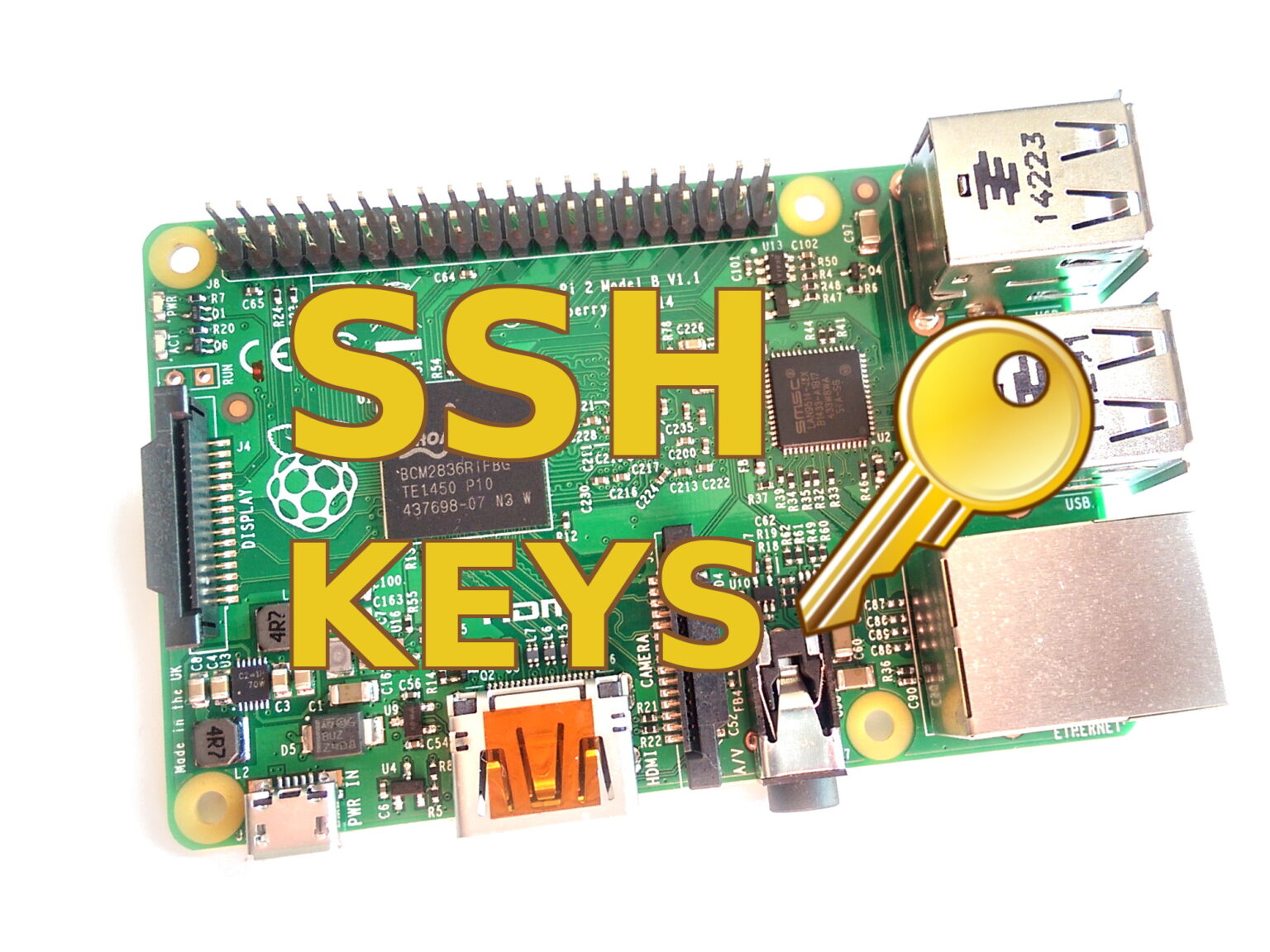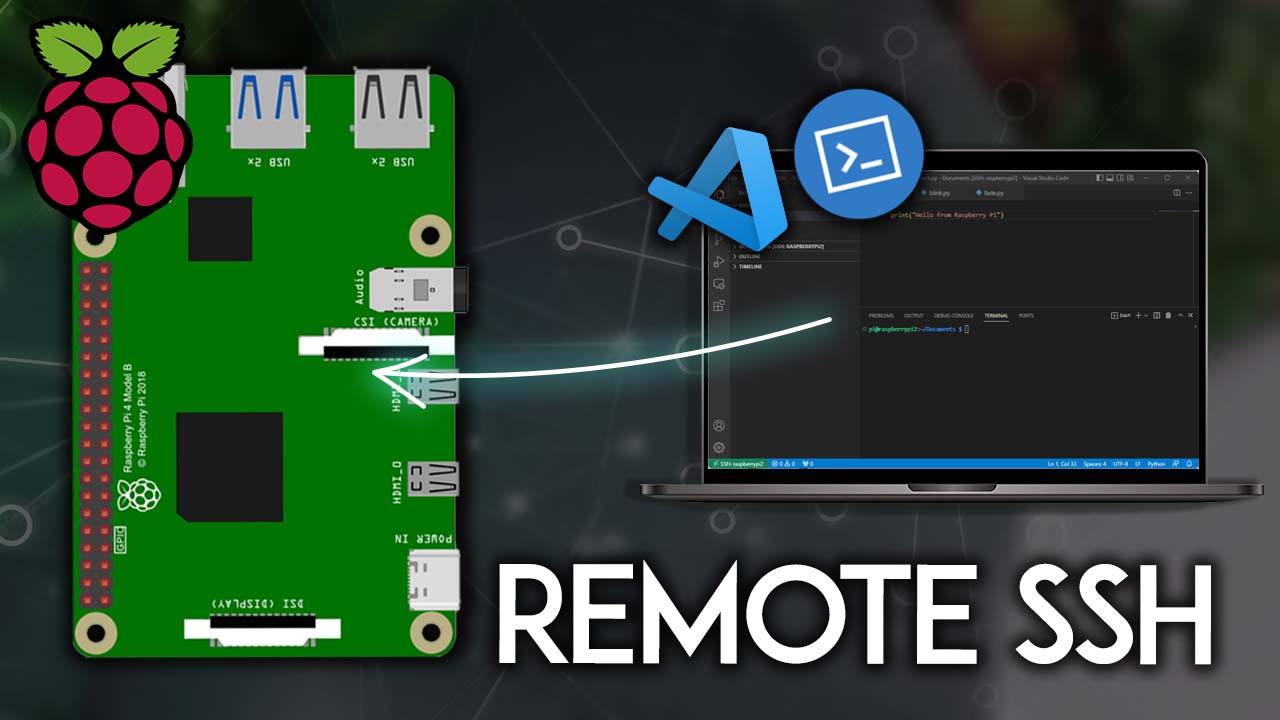Best Remote IoT Platform For Raspberry Pi: SSH Key Guide
Are you ready to unlock the full potential of your Raspberry Pi projects and experience the future of IoT management? Securing your Internet of Things (IoT) devices is no longer a luxuryit's a necessity. Lets delve into how you can seamlessly manage your Raspberry Pi remotely and securely.
The world of IoT is constantly evolving, and with that evolution comes a greater need for robust security measures. Imagine a Raspberry Pi, a powerful, versatile device, sitting on your desk, ready to connect to the world. Now, envision the ability to control and manage it from anywhere, at any time. This is the power of remote IoT platforms, especially when combined with secure methods of access like SSH keys.
If you're diving headfirst into the world of IoT and Raspberry Pi, you're in the right place. Today, were going to talk about the best remote IoT platform for managing SSH keys on your Raspberry Pi. Whether you're a hobbyist or a professional, securing your IoT devices is no longer optionalit's essential. So, buckle up and lets get started! Imagine thisyouve got a Raspberry Pi sitting on your desk, ready to take on the world of IoT. You want to manage it remotely, and you want to do it securely and efficiently.
- Telugu Movies Movierulz Updates Latest News Streaming Info
- 2025 Movie Guide Watch Online Reviews More Movierulz Beyond
Setting up SSH key management on your Raspberry Pi might sound intimidating, but trust me, its not as hard as it seems. The integration of free SSH key management with a reliable remote IoT platform is not just beneficial, it's essential for modern developers and hobbyists. This article delves into the world of remote IoT platforms, specifically focusing on those that offer free SSH key integration for Raspberry Pi. The remote IoT platform offers a robust solution by enabling SSH key management for Raspberry Pi devices. This ensures secure access and efficient remote management, which is crucial for developers and IT professionals.
They make remote management of your Raspberry Pi faster and more efficient. The integration of SSH keys with Raspberry Pi has emerged as a secure and efficient solution for managing IoT networks remotely. If you're looking for the best remote IoT platform that utilizes SSH keys on Raspberry Pi, this article is your ultimate guide.
Configuring SSH keys on your Raspberry Pi is a straightforward process that can significantly enhance the security of your IoT network. This section will guide you through the steps required to set up SSH keys for remote access:
- Vegamovies Your Guide To Free Movies Streaming Options
- Movie News Reviews Bollywood Tollywood More Find On Justwatch
The following table summarizes key information about SSH key management on Raspberry Pi. This ensures secure access and efficient remote management, which is crucial for developers and IT professionals.
| Feature | Details |
|---|---|
| What is SSH? | SSH (Secure Shell) is a cryptographic network protocol used to securely operate network services over an unsecured network. It provides a secure channel over an untrusted network. |
| Why use SSH Keys? | SSH keys offer a more secure method of authentication compared to passwords. They prevent man-in-the-middle attacks and make remote access more secure. |
| How to generate SSH keys? | You generate an SSH key pair (public and private) on your local machine. The private key remains secure on your local machine, and the public key is copied to your Raspberry Pi. |
| Steps to Set Up SSH Keys |
|
| Remote IoT Platforms | These platforms enable you to manage and monitor your Raspberry Pi remotely. They offer features like remote access, cloud alerts, and batch jobs. |
| Benefits of SSH with Remote IoT Platforms |
|
Now that we understand the importance of SSH keys, let's talk about the platforms that make managing them a breeze. Best remote IoT platforms for Raspberry Pi: A comprehensive guide in today's digital age, the internet of things (IoT) has revolutionized the way we interact with devices.
If you're looking for the best remote IoT platform that supports SSH key integration and works seamlessly with a Raspberry Pi at no extra cost, you're in the right place. The world of IoT has exploded in recent years, and finding the right tools is crucial to making your projects a success. The world of the internet of things (IoT) continues to evolve, and remote IoT platforms play a crucial role in managing devices like the Raspberry Pi. Open the terminal of your Raspberry Pi or access your Raspberry Pi with SSH on the local network and install the remote IoT service. Now, open the remote IoT portal in your browser and login to the dashboard. You should now see your Raspberry Pi in the list of account devices. Click connect port and select the.
The integration of free SSH key management with a reliable remote IoT platform is not just beneficial, its essential for modern developers and hobbyists. When you pair Raspberry Pi with a remote IoT platform and SSH keys, youve got a powerhouse trio that can build secure IoT solutions that stand the test of time. SSH, or Secure Shell, is a cryptographic network protocol designed to keep your communications safe over unsecured networks. They make remote management of your Raspberry Pi faster and more efficient.
Here's how to generate SSH keys and integrate them:
Step-by-Step Guide to Setting Up SSH Keys for Remote Access:
- Generate an SSH Key Pair: On your local machine, open a terminal and generate an SSH key pair using the following command:
ssh-keygen -t rsa -b 4096- This command creates a pair of keys: a private key (which you keep secret) and a public key (which you'll share with your Raspberry Pi).
- Copy the Public Key to Your Raspberry Pi:
- You need to copy the public key to your Raspberry Pi. Use the following command, replacing `user` with your Raspberry Pi username and `your_raspberry_pi_ip` with the IP address of your Raspberry Pi:
ssh-copy-id user@your_raspberry_pi_ip- You may be prompted for your Raspberry Pi password the first time.
- Test the SSH Connection:
- Once the public key is copied, try to SSH into your Raspberry Pi from your local machine:
ssh user@your_raspberry_pi_ip- If everything is set up correctly, you should be able to log in without a password.
The best remote IoT platforms for managing SSH keys offer various benefits, including remote access to your IoT devices, the ability to control your Raspberry Pi from anywhere, and the option to manage and monitor your IoT devices with cloud alerts and the execution of batch jobs.
Remote access to an IoT device, Control remote Raspberry Pi from anywhere, Manage and monitor IoT devices, set cloud alerts and run batch jobs on IoT devices. Programming Raspberry Pi remotely using VS Code (Remote SSH) random.
Article Recommendations
- Where To Watch Stream Movies Your Ultimate Guide 2024
- Unraveling The Rise Fall Of Jazmine Tans Persona



Detail Author:
- Name : Leanne Block IV
- Username : pschuster
- Email : astreich@hotmail.com
- Birthdate : 1987-06-23
- Address : 135 Schimmel Tunnel New Hayleymouth, WV 20862
- Phone : 872-810-3265
- Company : Hagenes LLC
- Job : Photographic Process Worker
- Bio : Hic cumque aut et error non et error sequi. Vitae eligendi aut optio in error.
Socials
twitter:
- url : https://twitter.com/zella_xx
- username : zella_xx
- bio : Incidunt fugiat qui vero minus. In ut et consequuntur est. Ut ipsa sed illo odio. Similique sequi consequatur sed et dolores eius illum magni.
- followers : 4913
- following : 2829
instagram:
- url : https://instagram.com/zella500
- username : zella500
- bio : Mollitia dolores labore veniam et numquam. Laboriosam non non voluptatem ea.
- followers : 3322
- following : 1426
facebook:
- url : https://facebook.com/zmayer
- username : zmayer
- bio : Ut eum officiis et voluptas facere soluta. Officia rem dolores tempore.
- followers : 5261
- following : 79
linkedin:
- url : https://linkedin.com/in/zella5434
- username : zella5434
- bio : Blanditiis adipisci unde voluptas magni.
- followers : 285
- following : 2625
tiktok:
- url : https://tiktok.com/@mayerz
- username : mayerz
- bio : Aut necessitatibus quam occaecati laborum incidunt illo.
- followers : 1596
- following : 59